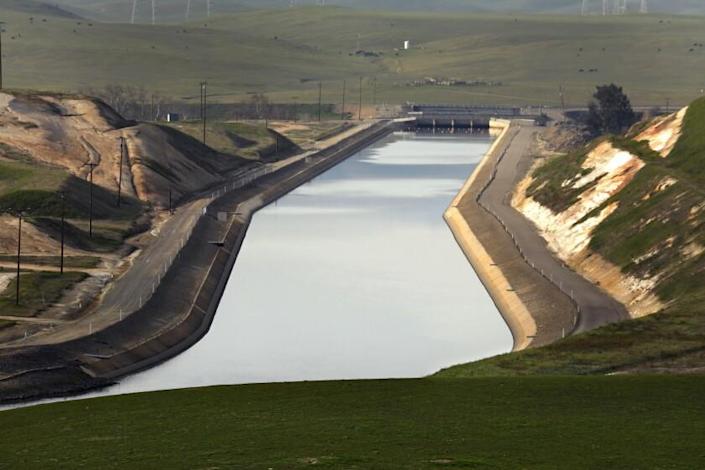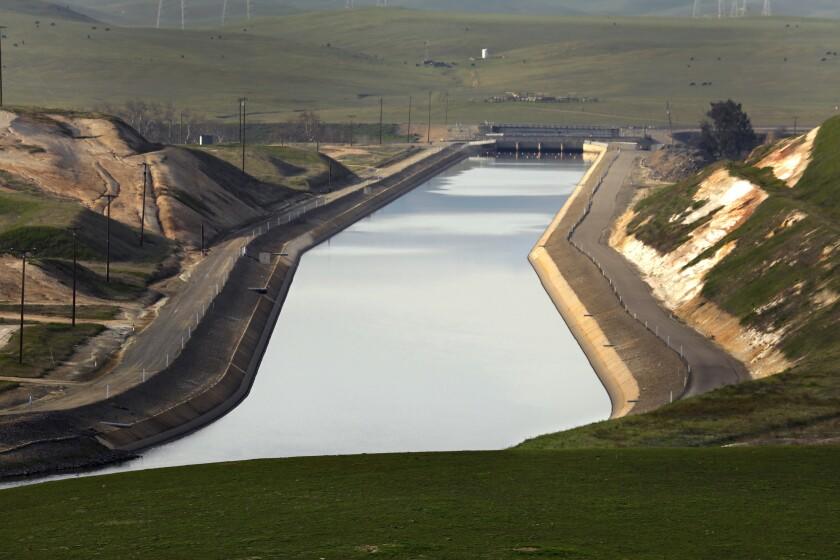
The former chief executive of a Central Valley water district has been accused of stealing more than $25 million worth of water over 23 years, the latest in a years-long story of corruption and theft, federal authorities said Thursday.
A federal grand jury has filed a five-time indictment against 75-year-old Aptos resident Dennis Falaschi, according to the US Law Office for the Eastern District of California.
He faces one charges each of conspiracy and theft of government property, and three counts of filing false tax returns, according to the indictment.
Falaschi was the general manager of the Panoche Water District, which according to court documents serves parts of Frenso and Merced counties near Dos Patos, Firebaugh and Los Banos.
The indictment does not name the water district, but in 2018 then California Atty. Gene. Xavier Becerra announced the arrest and filing of charges against five individuals for misuse of public funds amid widespread corruption in the district.
Falaschi is one of the defendants in the ongoing state case.
The water theft system began in 1992, according to the federal indictment.
That year, Falaschi was told that an outdated, abandoned drain on the Delta-Mendota Canal, part of the federal Central Valley Project, was leaking water into a parallel canal that operated the water district, the document said.
A gate in a pipe connecting the two channels had been bricked up years earlier when the drain was abandoned, but the cement was cracked, according to the charges.
After learning about the leak, Falaschi is said to have told a water district employee to install a new gate in the standpipe, which can be opened and closed on demand, the document said. He later told the employee to put a lid with a lock on top of the standpipe, and an elbow pipe about two feet at a 90-degree angle into the water district canal.
“The lid concealed the theft because it prevented people from seeing that the gate in the standpipe was functional,” prosecutors said. “The elbow pipe hid and accelerated the theft because it enclosed the water flow from the Delta-Mendota Canal into the Water District Canal and was installed so that it was generally flooded.”
Falaschi then told employees to use the new gate and pipe to steal federal water from the canal “multiple occasions,” prosecutors said.
“He used the proceeds from the theft to pay himself and others exorbitant salaries, fringe benefits and personal expense allowances,” prosecutors said.
The diverted water was not metered and went to a water district pumping station, where it was lifted into the wider district canal system, according to the indictment. It was combined with the district’s other water resources and sold to customers or pumped back into the federal canal so the district could collect water credits.
During the settlement, Falaschi is alleged to have told water district employees to misclassify the stolen water as recovered runoff from farms in reports submitted to the district’s board of directors, court documents said.
In total, more than 130,000 hectares of water have been stolen, according to the indictment.
An acre-foot is the amount of water it takes to cover one acre of land in a foot of water and is the standard unit of measurement in the water industry.
In April 2015, the drought lowered the water level in the canals enough for authorities to discover the pipe, cover and drain, the indictment said.
Federal authorities also alleged that Falaschi falsified tax returns from 2015 to 2017 and, according to court documents, reported no more than $900,000 in income to the Internal Revenue Service that he received from private water sales.
The federal case comes after state officials opened an pending criminal case against Falaschi and four other defendants.
In 2017, investigators discovered 86 barrels containing thousands of gallons of hazardous waste illegally buried at a wharf in Panoche Water District, according to state case coverage by The Times.
The state’s case expanded with allegations of misconduct that came to light during an audit.
In a statement, Falaschi’s attorney Marc Days said his client plans to plead not guilty to the federal charges.
“We have just received the charge and need additional time to review it,” Days told The Times. “The charge appears to be based on lies and inaccuracies.”
The lawyer said he plans to make further comments on the case in the very near future.
If convicted on all federal charges, Falaschi faces a maximum sentence of 18 years in prison and up to $750,000 in fines, prosecutors said.
This story originally appeared in the Los Angeles Times.

